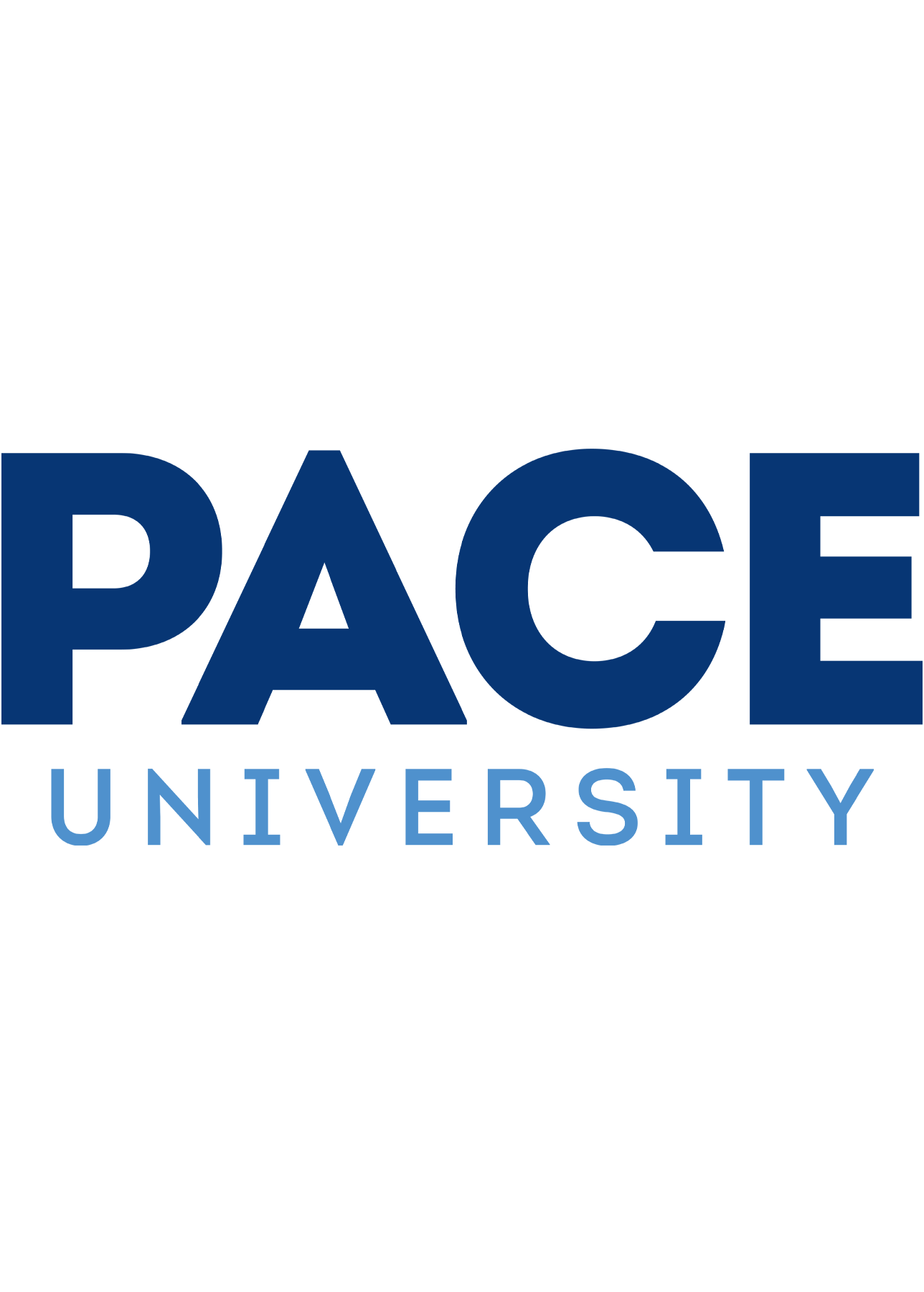Data science is one of the fastest-growing fields in the country, with thousands of job openings projected each year over the next decade. Yet, with many programs requiring the GRE, this path may not be accessible for everyone. These online data science master’s degree programs are unique because they share virtually the same curriculum as their traditional counterparts, without a GRE requirement — forging a more approachable path for many students.
Graduates will be prepared for high-demand roles such as data scientist, with a median salary of $108,020; data analyst, with a median salary of $83,640; and business intelligence analyst, with a median salary of $99,410.
These programs often take 18 months to three years to complete, offering flexibility for working professionals and those balancing other significant commitments — like raising a family or caretaking.
Why Trust Us
The Intelligent.com Higher Education Team is dedicated to providing students with independent, equitable school and program rankings and well-researched resources. Our expert-driven articles cover topics related to online colleges and programs, paying for school, and career outlooks. We use data from the U.S. Department of Education’s College Scorecard, the National Center for Education Statistics, and other reputable educational and professional organizations. Our academic advisory team reviews content and verifies accuracy throughout the year for the most current information. Partnerships do not influence rankings or editorial decisions.
- Analyzed over 2,000 national, accredited, and nonprofit colleges and universities
- 800+ rankings pages are reviewed and updated yearly
- Content is informed by reputable sources, surveys, and interviews with academic advisors and other experts
- Over 100 data points are reviewed for accuracy and quality throughout the year, including sources
How we rank schools
Our list features the best online Data Science (No GRE) degree programs at top colleges nationwide. Each school featured is a nonprofit, accredited institution — either public or private — with a high standard of academic quality for post-secondary institutions.
We evaluated each school’s program on tuition costs, admission, retention and graduation rates, faculty, reputation, and the student resources provided for online students. We collected data from trusted sources like the National Center for Education Statistics, individual school and program websites, school admissions counselors, and other data sources. Then, we calculated the Intelligent Score on a scale of 0 to 100 based on the following criterion:
Academic Quality:
- Admission rate versus enrollment rate
- Retention rate of students who return after year one
- Accreditation status (regional and programmatic)
- Nonprofit status, both private and public institutions
Graduation Rate
- Overall graduation rate
- Total number of currently enrolled students, including diversity metrics
- Student-to-faculty ratio
Cost and ROI
- In-state and out-of-state per-credit tuition rates and fees
- Required credits to graduate
- Earning potential after graduation
- Availability of federal student loans, scholarships, and other financial aid options
Student Resources
- Available student services for online-only and hybrid programs
- On-campus amenities like tutoring centers and the number of libraries
Read more about our ranking methodology.
Best 13 Accredited Online Data Science Master's Programs (No GRE)
FiltersInstitution Type
Status
- Intelligent Score
- Alphabetically By University Name
- Acceptance Rate
- Enrollment
- In-state Graduate Tuition
- Out-of-state Graduate Tuition
- In-state Undergraduate Tuition
- Out-of-state Undergraduate Tuition

University of Southern California
Intelligent Score: 98.46In-state: $59,260
Out-of-state: $59,260
In-state: $47,880
Out-of-state: $47,880
SAT: 1340-1530
ACT: 30-34
$2,354
Online, On-Campus
Western Association of Schools and Colleges
32

University of California, Berkeley
Intelligent Score: 98.27In-state: $11,442
Out-of-state: $41,196
In-state: $11,442
Out-of-state: $11,442
SAT: 1310-1530
ACT: 30-35
$950
Online
Western Association of Schools and Colleges
30

Bay Path University
Intelligent Score: 96.86In-state: $35,781
Out-of-state: $35,781
In-state: $19,235
Out-of-state: $19,235
SAT: 940-1170
ACT: 23-31
$895
Online
New Engliand COmmision of Higher Education
30

Texas Tech University
Intelligent Score: 95.60In-state: $8,683
Out-of-state: $20,953
In-state: $6,788
Out-of-state: $6,788
SAT: 1070-1240
ACT: 22-27
$213
Online, On-Campus
Southern Association of Colleges and Schools Commission on Colleges
36

University of Missouri
Intelligent Score: 95.28In-state: $9,330
Out-of-state: $27,612
In-state: $9,478
Out-of-state: $9,478
SAT: 1110-1320
ACT: 23-29
$610
Online
Higher Learning Commission HLC
34

DePaul University
Intelligent Score: 94.48In-state: $40,551
Out-of-state: $40,551
In-state: $19,370
Out-of-state: $19,370
SAT: N/A
ACT: N/A
$955
Online
Higher Learning Commission
48

Worcester Polytechnic Institute
Intelligent Score: 93.13In-state: $53,100
Out-of-state: $53,100
In-state: $28,980
Out-of-state: $28,980
SAT: N/A
ACT: N/A
$1,610
Online
New Engliand COmmision of Higher Education
30

Lewis University
Intelligent Score: 92.72In-state: $34,268
Out-of-state: $34,268
In-state: $14,580
Out-of-state: $14,580
SAT: 1010-1220
ACT: 21-27
$860
Online
Higher Learning Commission
33-42

University of Illinois at Urbana - Champaign
Intelligent Score: 92.48In-state: $14,317
Out-of-state: $33,824
In-state: $15,016
Out-of-state: $15,016
SAT: 1200-1460
ACT: 27-33
$620
Online
Higher Learning Commission
32

University of Michigan-Dearborn
Intelligent Score: 88.97In-state: $16,520
Out-of-state: $53,669
In-state: $24,344
Out-of-state: $24,344
SAT: 1340-1520
ACT: 31-34
$663
Online
Higher Learning Commission
30

Rice University
Intelligent Score: 86.76In-state: $50,310
Out-of-state: $50,310
In-state: $47,306
Out-of-state: $47,306
SAT: 1460-1570
ACT: 34-36
$1,667
Online
Southern Association of Colleges and Schools Commission on Colleges
31-34

Syracuse University
Intelligent Score: 86.64In-state: $53,432
Out-of-state: $53,432
In-state: $40,392
Out-of-state: $40,392
SAT: N/A
ACT: N/A
$1,945
Online
Middle States Commission on Higher Education
34

Pace University
Intelligent Score: 85.77In-state: $45,832
Out-of-state: $45,832
In-state: $32,256
Out-of-state: $32,256
SAT: 1060-1240
ACT: 22-28
$1,150
Online, On-Campus
Middle States Commission on Higher Education
30
How to Choose an Online Data Science Master’s Program (No GRE)
Choose your area of study
Choosing a specialization for your master’s in data science can ultimately make your education more rewarding, as it’ll directly apply to your future career. These options often make you a more competitive hire and align your studies with industry needs.
For example, those aiming to leverage data to drive business decisions may enjoy concentrating on business analytics, preparing for careers in the corporate sector. On the other hand, students wanting to improve patient outcomes through data may prefer healthcare analytics, and those focused on protecting data and systems may opt for cybersecurity.
Research schools and programs
You’re already one step ahead by having an intended specialization in mind. You can use this information to help narrow down your options, such as looking for programs that offer strong coursework and faculty in your area of interest. Consider using the following questions to help guide your research further:
- What is the faculty’s experience in my specialization?
- What support services are available for online learners?
- What is the program’s graduation rate?
- Are there opportunities for industry partnerships or internships?
You can find this information on university websites, by speaking to an admissions counselor, or by attending a virtual open house. Many students also benefit from using platforms like LinkedIn or Reddit to gain firsthand perspectives from alumni or current students.
Prepare for tests and applications
Once you have a shortlist of programs, you can begin preparing for tests and applications. This is an excellent time to start gathering and organizing your materials, which often include:
- Academic transcripts
- Letters of recommendation
- Personal statement or statement of purpose
- Resume or CV
Since these programs don’t require the GRE, they’re more likely to emphasize other elements of the application — such as your personal statement or previous work experience — to grant admission.
Select your program
The arrival of acceptance letters is always exciting, but it can quickly become overwhelming if you receive more than one. Take a moment to revisit your initial research criteria, focusing on what matters most, such as specialization relevance, the faculty you’ll learn from, and the program’s reputation. Next, evaluate the total cost of attendance, including tuition and fees, and compare this with any financial aid opportunities to determine which program resonates with your goals and is financially feasible.
Determine how you’ll pay for your degree
Start by submitting the FAFSA to determine your eligibility for federal aid, but don’t hesitate to apply for scholarships and grants from universities and external organizations, as these can help further reduce costs. Assistantships offer resume-boosting work experience and financial support for those seeking part-time employment, while full-time employees may be eligible for tuition reimbursement through their employer.
If you’re still left with financial gaps, opt for federal loans over private loans, as federal loans generally offer lower interest rates and more flexible repayment options.
What Can You Expect From an Online Data Science Master’s Program (No GRE)?
By enrolling in an online data science master’s degree program that doesn’t require the GRE, you can expect a comprehensive and rigorous curriculum akin to traditional programs. The absence of the GRE requirement streamlines the application process, making it more accessible without compromising academic quality.
Throughout the program, you’ll delve into statistical analysis, machine learning, data visualization, big data technologies, and programming languages like Python and R. Many programs offer core courses, including data mining, predictive modeling, data ethics, and business intelligence, ensuring graduates are well-prepared for the data-driven job market.
Instead of a traditional thesis, these programs frequently culminate in a capstone experience. This allows students to shift their focus away from original research, instead applying their knowledge to real-world problems, often in collaboration with industry partners.
Estimated completion times for these programs usually range from 18 months to three years, depending on whether you enroll full-time or part-time.
Potential courses you’ll take in an online data science master’s program
- Introduction to Data Science: A foundational course in virtually all curriculums, this class introduces students to the essential concepts and tools of data science. They’ll gain hands-on experience with data manipulation, cleaning, and visualization using programming languages such as Python or R and learn how to apply machine learning algorithms to solve real-world problems.
- Business Analytics: In this course, students will learn how to use data to inform business decisions, exploring techniques in data mining, predictive modeling, and statistical analysis. A significant emphasis is placed on developing skills to interpret complex data sets and create actionable insights, ultimately driving strategic business outcomes.
- Statistics for Data Science: Often a part of the core curriculum, this course teaches students statistical methods crucial for data analysis and interpretation. Topics include probability theory, hypothesis testing, regression analysis, and statistical inference, providing a solid foundation for making data-driven decisions and analyzing data.
- Cybersecurity: Typically deemed an upper-level course, this class covers the fundamentals of security data and protecting systems from cyber threats. Participants will study cybersecurity frameworks, threat detection methods, and risk management strategies, preparing them to safeguard sensitive information and guarantee data integrity in organizational settings.
What Can I Do With a Data Science Master’s Degree?
With a master’s in data science, you can pursue a career in one of the fastest-growing occupations in the country, where there is a high demand for skilled professions in many fields — including technology, finance, healthcare, and business analytics.
Career outlook
- Data Scientist — These professionals analyze data sets to extract meaningful insights and help organizations make data-driven decisions.
- Median annual salary: $108,020
- Projected employment growth (through 2032): 35%
- New jobs projected: 17,700
- Data Analyst — Data analysts focus on interpreting data and providing actionable insights to stakeholders. They often use data visualization tools to create reports and dashboards that help organizations track performance and identify trends.
- Median annual salary: $83,640
- Projected employment growth (through 2032): 23%
- New jobs projected: 9,800
- Business Intelligence Analyst — Individuals in this role use data to develop insights into business performance and strategy. They create reports, dashboards, and visualizations to help executives and managers make informed decisions.
- Median annual salary: $99,410
- Projected employment growth (through 2032): 10%
- New jobs projected: 92,900
Online Data Science Master’s Degree (No GRE) Frequently Asked Questions
How do degree programs with no GRE requirement work?
Degree programs without a GRE requirement function similarly to those with the requirement, with the only difference being the admission process. Admissions focus on other aspects of the application, such as academic performance, professional experience, and personal statements, making them more accessible. These programs are often just as competitive, if not more so, than their traditional counterparts.
To learn more about the pros and cons of a no-GRE program, visit our page, which explores this further.
How long does it take to earn an online data science master's degree?
Full-time students often complete the program in two years or less, while part-time students may take three years or longer. Before enrollment, assessing the total number of required credits is essential, as this can vary by program and significantly impact completion timelines.
How much does an online data science master's degree cost?
According to the National Center for Education Statistics, the average tuition for a graduate degree program is $20,513. You’ll also want to anticipate additional expenses like technology fees, textbooks, and course materials. These extra costs can add up over time, increasing the cost of your education.

